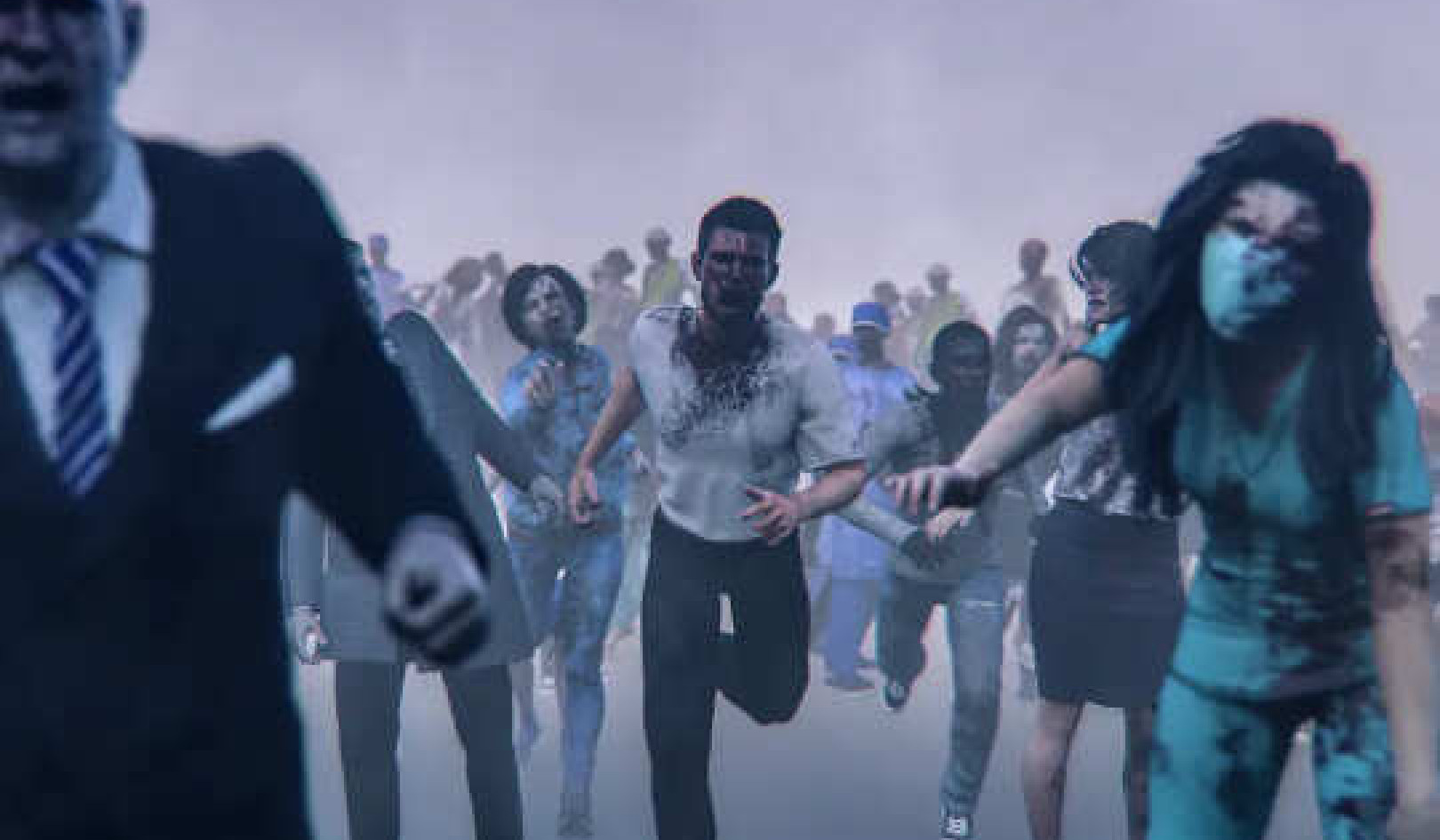
Many of us are obsessed with certain things such as food, sex, gambling or work, or with certain people or emotions. When it comes to these obsessions we are out of control. But all of us have one obsession that we tend to ignore: we are obsessed with thinking.
It is an obsession that escapes us because, even if we do not deny it, we take it for granted. Just as people might be obsessed with food and find themselves in front of the fridge without knowing how they got there; so it is with our mind and thinking.
Thinking is our default state of consciousness. Unless a particularly powerful experience pulls our attention away and renders our mind “speechless”, each and every activity we are involved in will always be accompanied by a stream of thought. This way of being seems natural, and is hardly ever an issue. But is there a different way of being?
Obsession Means Being Out Of Control
Try this mind wandering exercise: keep your attention focused on an object in a non-analytical way, concentrate on it and keep it fully in your awareness without reacting to it in any way. . . . .
How much time passed before your attention was sidetracked by thinking? For most of us the answer would be no more than a few seconds. This is the span of your control over your thinking process.
Thinking occurs automatically, and even when you consciously choose not to think, your attention becomes attached to a thought. Your conscious choice is overruled by thinking, which takes over your mind.
Choosing a different object to focus on would make no difference; you might even scream in frustration: “Enough! I want to stop thinking right now, it is driving me crazy!” but you are unable to control your thoughts. Not only is this lack of control detrimental to your well-being, it also impairs your ability to be present
There Is Nothing Wrong With The Mind
Our mind, that amazingly powerful and efficient instrument, was formed as part of our evolution. But it has since overpowered its owner. Instead of functioning as an instrument it is now the absolute ruler of our consciousness, the power that steers us and dominates our decisions and choices at each and every moment. In other words, we do not control our mind, and can no longer choose whether or not to use it at a particular moment.
Of course, we would have never been able to go through life without the help of the mind. When you make a grocery list you must know what your kids like to eat; when you drive over to the house of a friend, you must plan your route and mind the other drivers. Most of our daily activities involve using our mind.
But what about all the other moments, when a call from within urges you to sit still, breathe, be meditative? The moments when you truly wish to listen to a friend peacefully, with deep presence? You soon find out that this is not possible. Your mind is so accustomed to react and think that you no longer have a choice. The mind throws in its automatic reaction at every moment, and your awareness is caught in it, whether you wish it or not.
Resting In Your Inner “Home”
Imagine that meditation creates an inner space in you, which is calm and peaceful; this can be your inner “home”. A space where you can stay, rest, let go of the burden of worries and calculations, and truly relax. This inner space is formed through regular practice of meditation, and is one of the best gifts you can offer yourself. By creating this space, you are actually offering yourself a choice: do I wish to engage in thinking or do I choose to stay in the peaceful space of my inner home?
Here is a wonderful meeting point between psychology and spirituality. Psychology is essentially concerned with the cognitive processes of thinking, comparing, deciding; these processes denote very important moments in your life. Without them, life would be impossible. Spirituality, on the other hand, is essentially the experience of transcendence, that inner home, the space that takes us away from the processing of the mind and into a meditative space of peace; you breathe, your awareness turns inside, and you experience peace.
In order to live your life fully, the most important skill you could strive for is the ability to move from one state to the other. The ability to engage with life in a cognitive way whenever this is required is essential. But the ability to engage with life meditatively is no less essential. A life devoid of thinking is complete chaos; but without meditation life would be marred by stress and anxiety. Having the option to choose between these two states results in an exquisite balance where psychology and spirituality both offer you the beauty of their presence in your life.
Aware vs. Unaware Thinking
Obviously, we are not talking about giving up thinking. But you do have a choice about the focus of your awareness. The point is regaining control over your awareness in order to be able to choose.
Ask yourself: “Do I wish to think about what is happening right now, or do I simply want to be present while this moment unfolds? What would be the right choice for me?” At this stage, most of us never ask this question; we lack the skill to actually be present even if we wanted to.
Once you cultivate your meditation skills your awareness will simply be present at the right moment. In other words, I invite you to switch from your currently unaware thinking, where your attention is automatically pulled away by your thoughts, to aware thinking, where you have the choice to consciously allow your attention to focus on your thoughts.
Consider the following scenario: When I receive an email inviting me to give a talk on a certain date – I call forth my thinking faculty. I need to open my diary, check the dates, and make a choice. But what do I do next?
If this were part of an aware thinking process, my awareness, having completed its analytical task, would again turn inward, waiting to be called again. Your awareness could focus on your breath, on your heart, or on any other meditative focal point. A minute or an hour later, you may choose to summon again your aware thinking to tackle another issue, and then let it go again. In other words, you choose the most suitable experience, whether meditation or thought, according to the requirement of the moment.
But the traditional scenario is quite different. I use my mind to make a choice regarding the talk, but it does not end there. My mind immediately begins an endless parade of thoughts, some irrelevant, about the audience, the weather in the place where I give the talk, and the material I would like to expound on. This is a typical unaware thinking process. A relevant thought has triggered a series of mind reactions that sent my awareness spinning with thoughts that have nothing to do with the moment, and would only become relevant when I consciously choose to prepare for the talk.
The thoughts that pulled me away from presence were ego-concept-based. The only moment that mattered was the one in which the decision about the talk was made. Would my awareness be strong enough to recognise that the thought process was completed and had to stop? Would I be able to let go of my thoughts and regain a state of peace? Or would I get entangled in a web of thinking?
Your self-growth will be expressed by your ability to transit smoothly from aware thought to meditative presence and back again, in an ongoing cycle, according to need. Awareness offers you the choice to switch from one to the other. Your own important task is to gradually evolve from unaware thinking into the process of aware thinking and cultivate your choice and freedom by doing that.
©2014 by Itai Ivtzan. All Rights Reserved.
Published by Changemakers Books.
Article Source
 Awareness Is Freedom: The Adventure of Psychology and Spirituality
Awareness Is Freedom: The Adventure of Psychology and Spirituality
by Itai Ivtzan.
Click here for more info and/or to order this book.
About the Author
 Dr Itai Ivtzan is passionate about the combination of psychology and spirituality. He is a positive psychologist, a senior lecturer, and the program leader of MAPP (Masters in Applied Positive Psychology) at the University of East London (UEL). If you wish to get additional information about his work or contact him, please visit www.AwarenessIsFreedom.com
Dr Itai Ivtzan is passionate about the combination of psychology and spirituality. He is a positive psychologist, a senior lecturer, and the program leader of MAPP (Masters in Applied Positive Psychology) at the University of East London (UEL). If you wish to get additional information about his work or contact him, please visit www.AwarenessIsFreedom.com




























